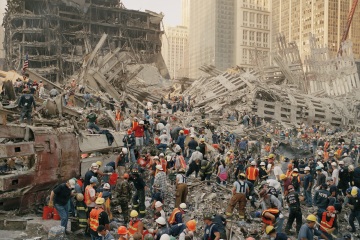In memory of the September 11th terrorist attacks, first responders, construction workers, volunteers and survivors who helped with rescue and recovery at Ground Zero have reason to be even more hopeful today. The World Trade Center Health Program recently added 58 new types of cancer as a service that would be provided under the James Zadroga 9/11 Health and Compensation Act of 2010. The act was initially signed by President Obama in 2010 to provide health coverage to those who lived, worked or attended school in the immediate area of the 9/11 attacks. The Act was named after New York City police detective James Zadroga, who died after working at the site.
The Federal government set aside $4.3 billion dollars for 9/11 victims who had been exposed to airborne toxins and acquired adverse conditions such as asthma, acid reflux disease, back pain and chronic sinus irritation, etc. Though cancer had not originally been drafted in the act, studies have shown that over the course of 11 years the link between the 9/11 toxic dust cloud and cancer may be more evident.
Analysis found that substances in the dust included cement, gypsum, asbestos, glass fibers, calcium carbonate, lead and other metal particles. Lead and other heavy metals can be toxic to the brain, and gypsum, a component of drywall, can cause respiratory problems if it’s inhaled over a prolonged period of time.
In an interview with ABC World News, Dr. Philip Landrigan, dean of global health at the Mount Sinai School of Medicine in New York explained that those who were in the immediate area during the attacks could have been exposed to an abnormally large amount of these toxins.
“That means it’s extremely caustic and would be like inhaling powdered lye or Drano… Asbestos is a human carcinogen. It causes lung cancer, laryngeal cancers and malignant mesothelioma, and these typically develop anywhere from 10 to 30 years after exposure.”
While it has not yet been proven whether the 9/11 dust cloud was the cause of cancer, the lobbying efforts of construction workers, firefighters, police officers, and others who fell ill a decade after the terror attack was enough to convince the government to add health coverage for cancer to the list. Read More…


Leave a Reply